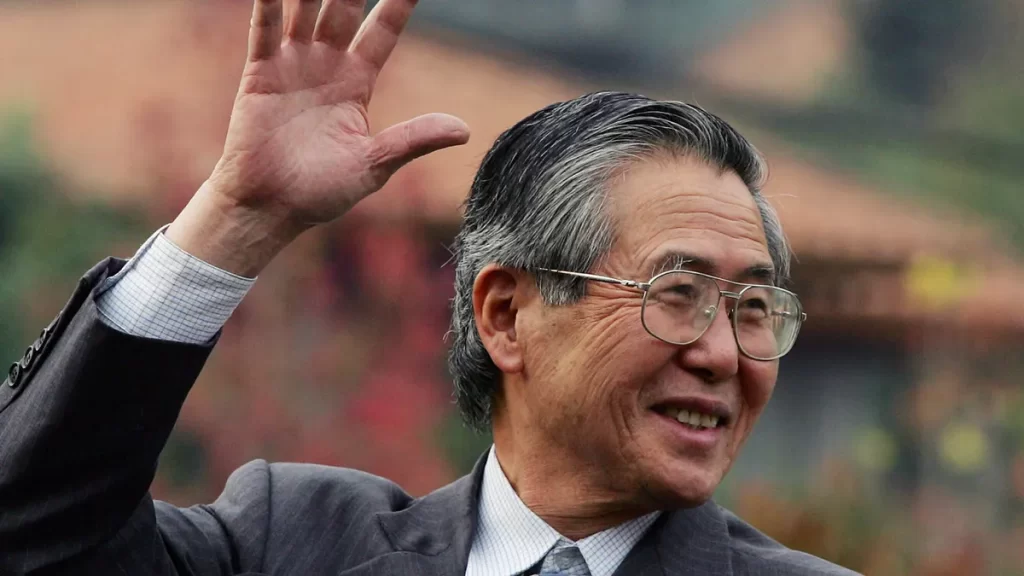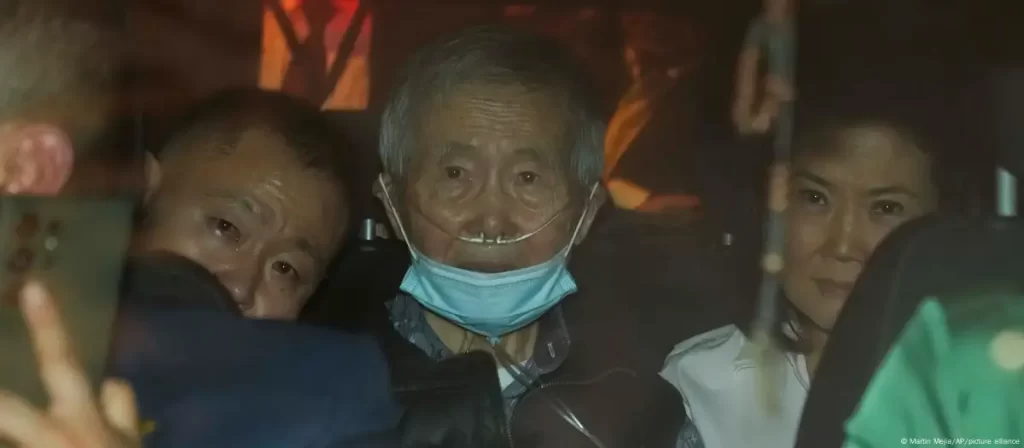Alberto Fujimori, Peru’s former president whose decade in power was marked by economic reforms, a crackdown on guerrilla violence, and human rights abuses, died Wednesday in Lima at the age of 86, his children announced.

“After a long battle with cancer, our father, Alberto Fujimori, has just departed to meet the Lord,” his children Keiko, Hiro, Sachie and Kenji Fujimori stated on the social media platform X, formerly known as Twitter.
Fujimori, who led Peru from 1990 to 2000, leaves behind a complex and divisive legacy that continues to shape the country’s political landscape. The son of Japanese immigrants, he gained popularity for steering Peru’s economy onto a more stable path during his tenure. He was widely credited for quelling the violent insurgency of the Shining Path rebel group, a feat that many Peruvians still regard as his most significant achievement.
While praised by supporters for his decisive action against terrorism, critics reviled Fujimori for his authoritarian style of governance. His presidency was marred by allegations of human rights abuses and corruption.
Fujimori was sentenced to 25 years in prison in 2009 for human rights violations, including his role in killings and kidnappings by death squads targeting suspected insurgents in the 1990s. In December 2022, he was released from prison on humanitarian grounds after serving two-thirds of his sentence. The release came after Peru’s Constitutional Court reinstated a 2017 pardon, which had been previously revoked by the country’s Supreme Court.

Fujimori’s influence extended beyond his presidency, with his children playing significant roles in Peruvian politics. His daughter Keiko, a former presidential candidate herself, had recently suggested that her father planned to run for Peru’s presidency for the fourth time in 2026, despite his advanced age and health issues.
Fujimori’s death marks the end of an era in Peruvian politics, but the debate over his legacy is likely to continue. Supporters remember him as the leader who stabilized Peru’s economy and defeated terrorism, while critics point to the human rights abuses and corruption that occurred under his watch.
As Peru processes the news of Fujimori’s passing, the country faces ongoing political instability and economic challenges, issues that have persisted in the decades since his controversial presidency. The former president’s death is likely to reignite discussions about Peru’s recent history, the balance between security and human rights, and the long-term impacts of authoritarian governance in Latin America.



